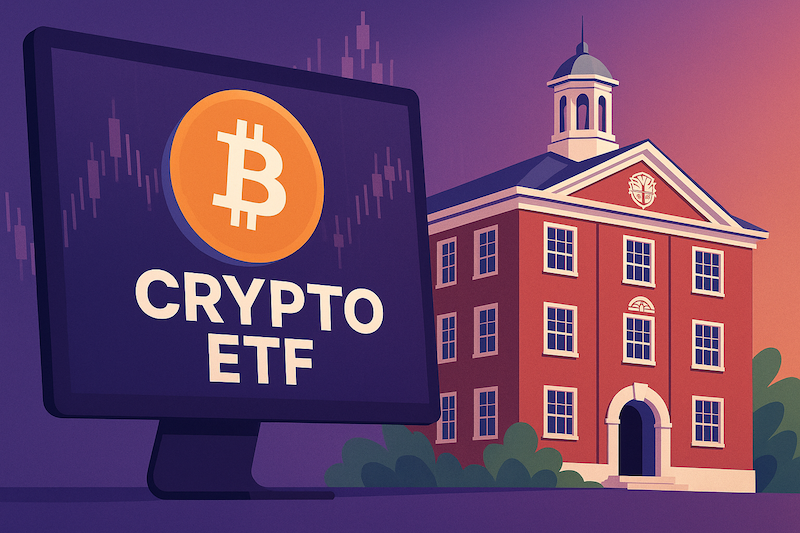Crypto ETF Adoption in Universities
Brown University’s recent $5 million investment in BlackRock’s iShares Bitcoin Trust (IBIT) is a major institutionally focused move in the adoption of crypto ETFs. This investment makes Brown the first Ivy League school to incorporate a crypto ETF into its endowment portfolio. The investment accounts for around 0.07% of Brown’s $7.2 billion endowment, demonstrating a prudent but progressive approach to digital assets.
Other universities are also on the same page. Emory University revealed a $15 million holding in Grayscale’s Bitcoin Mini Trust ETF during the late months of 2024. Likewise, the University of Austin introduced a $5 million Bitcoin fund under its $200 million endowment during the early months of 2025. This shows an increasing pattern among universities to diversify their funds using crypto ETFs.
Growth and Regulatory Landscape
The SEC’s January 2024 approval of spot Bitcoin ETFs created institutional demand. BlackRock’s IBIT soon accumulated over $56 billion in assets under management, becoming the quickest ETF to reach $10 billion. Some of the reasons behind the surge include BlackRock’s institutional reputation, a low-cost expense ratio of 0.12%, and connectivity with legacy brokerage platforms.
Regulatory actions have been important for enabling this adoption. The SEC’s demands for cash-only creations, surveillance-sharing arrangements, and safe custody options such as Coinbase Custody have allayed market manipulation and asset security issues. These precautions have opened up crypto ETFs to institutional investors and made them more desirable.
Crypto ETF Inclusion in Academic Portfolios
Universities are increasingly looking at ETFs as strategic assets. With investment time horizons of decades, endowments view Bitcoin as an inflation hedge and a geopolitical risk hedge. The utilization of ETFs enables institutions to access digital assets without the hassle of direct custody.
Moreover, it also provide liquidity benefits. Crypto ETFs can be traded every day, unlike usual private equity investments, which can be non-liquid. This liquidity is especially useful during times of economic uncertainty or when institutions run short of funds.
Impact on Scholarly Investment Strategies
The inclusion of crypto ETFs in university endowments also demonstrates wider changes in investment practice. Student and faculty pressure for investment modernization has shaped administrative choice. Surveys show high levels of faculty support for including digital assets within portfolios.
In addition, the performance of crypto ETFs has been intriguing. For example, the price of Bitcoin hit $96,723 in May 2025, providing a 55.88% annual return, beating traditional indices such as the S&P 500. Such returns highlight the potential advantages of adding crypto ETFs to diversified portfolios.

